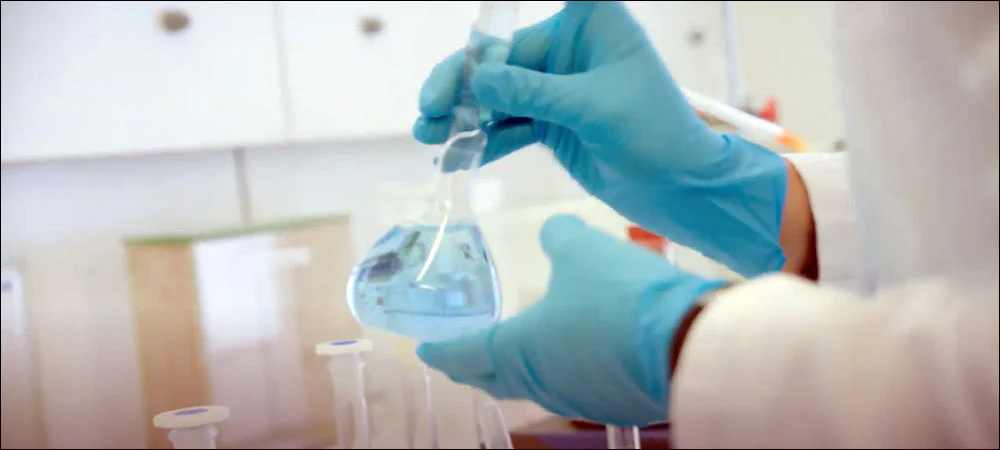Fagron Sterile Services provides automated data access regarding single-use products to help hospitals adopt RFID for visibility, and facilities can receive items already tagged for onsite use.
Jan 04, 2022 Pharmaceutical compounding company Fagron Sterile Services (FSS) is preparing to build radio frequency identification technology into some of its single-use drugs, beginning in February 2022, for use by its healthcare provider customers. Hospitals employing Kit Check RFID systems can then automatically capture data regarding those products and track inventory, expirations dates and recalls. By building the UHF RFID tags into its labels for select products at its manufacturing site in Wichita, Kans., the company says it will better serve customers that seek a more automated solution for pharmaceutical inventory management.
For those tracking products via RFID for the first time, the benefit will be greater accuracy in managing inventory, identifying expiration dates and improving inventory for their healthcare customers, according to Glen Olsheim, Fagron Sterile Services’ VP of business and new product development. At the same time, he says, hospitals already applying RFID tags to the products they receive could be spared that manual effort.

Glen Olsheim
In general, compounding pharmacies combine, remix or change standard medications’ active ingredients and additives according to patients’ specific needs. However, facilities designated as 503B operate on a much larger scale and follow standards to validate every process according to current good manufacturing practices. FSS is registered with the U.S. Drug Enforcement Administration and the U.S. Food and Drug Administration as a 503B outsourcing facility. The company provides sterile medications that include ready-to-administer IV bags and syringes for pain-management ophthalmology, dialysis and urology, as well as for other treatments.
Fagron Sterile Services entered the U.S. market for compounding in 2010. It sells products directly to hospitals or physicians, Olsheim explains, and it provides medications to millions of patients around the world annually. Recently, some of its customers have requested that FSS build passive UHF RFID tags into the labels of its products so they can be automatically read via Kit Check’s RFID-enabled Scanning Stations (casually referred to as “blue boxes”) when the goods are received at hospitals. Some medical facilities have declined to use FSS products simply because it doesn’t apply the RFID tags they would want to use.
RFID technology use at hospitals is growing, notes Lori Murphy, Kit Check’s portfolio director. That growth among healthcare facilities may have outpaced adoption by pharmaceutical firms to date, in fact. Some hospitals are hand-applying RFID tags because it’s difficult to find compounders incorporating the tags into their labels. It’s a time-consuming process that can take healthcare professionals away from other tasks and slow down the intake process. “There is a whole workflow around someone at a hospital applying these tags manually,” she says. “This is a very time-consuming job, but it still has to be done because not every item is coming with an RFID tag.”
FSS began working with Kit Check in 2020 to create a solution. The goal, Olshein says, was clear: “We really believe in the technology. One of our mandates is to make our clients more efficient in their workplace, and we think what Kit Check offers is invaluable to their efficiency.” He adds that without the technology, errors can increase related to selecting the wrong drugs or mislabeling those destined for patients, while expiration dates can be missed, leading to unnecessary waste or even health risks if expired medications are erroneously administered. These are challenges that extend across the industry, he says.

Lori Murphy
Identifying and differentiating products, such as phenylephrine, epinephrine and ephedrine, can be subject to human error, Olsheim says, since the names look so familiar to fast-moving healthcare providers or pharmacists. “You always have the risk that one of those could be confused or misread,” he states. Additionally, there is the challenge of discerning product volumes. An anesthesiologist may not have the opportunity to double-check the number of milliliters in a particular unit, or to confirm whether they match what should be in a kit for a specific procedure.
Drug misidentification and patient care are FSS’s number-one priority, Olsheim says. However, the company also wants to be sure its clients have access to inventory data that can help them identify goods requiring replenishment, or that need to be used before they expire. RFID, he says, provides a solution. Kit Check’s technology is being used by various facilities (see Avery Dennison, Kit Check Team Up on RFID Technology for Big Pharma and Hospital Pharmacy Keeps Emergency Medication Kits in Check). With the new deployment, FSS will apply RFID product labels created by its label converter. The unique ID number encoded on each RFID tag will be linked to data such as expiration date, national drug code and serial number, which will be stored in Kit Check’s cloud-based software.
Fagron Sterile Services is tagging the 10 prescription drugs being used most frequently in operating rooms for customers that employ the Kit Check technology. When syringes are filled on the assembly line, those destined for RFID labeling are routed to a dedicated conveyor. FSS installed an RFID reading tunnel with a built-in Impinj reader at the end of each assembly line or conveyor belt, Murphy explains, which can be easily moved as production requires. The tagged products are packed in boxes or bags, after which the reader interrogates each drug’s tag, while also scanning a barcode on its package, thereby linking


